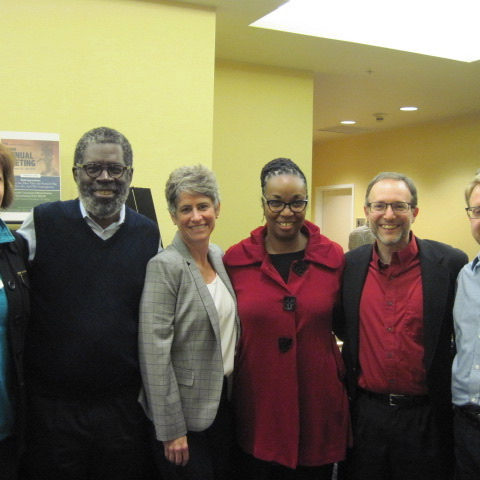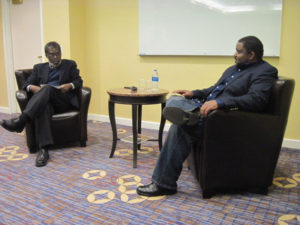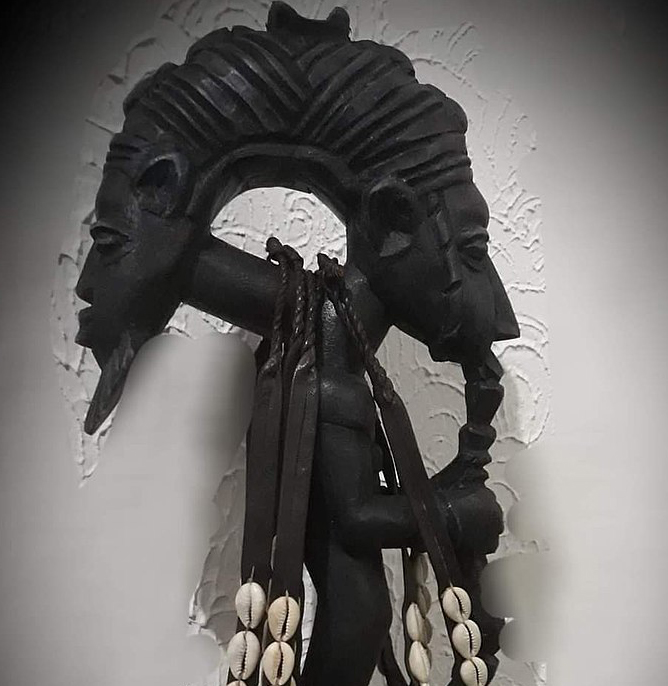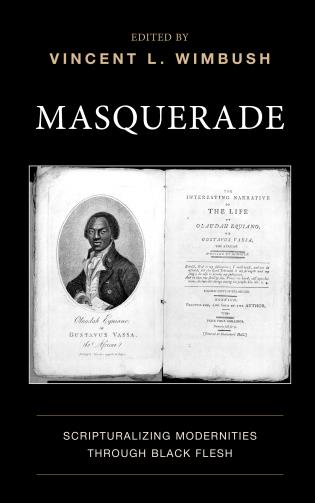ISS Institutional Affiliates Status
February 9, 2018
Finding our Voices – by Quynh-Hoa Nguyen
April 27, 2018Third ISS Annual Meeting (2018)-summary

 Friends and members of ISS gathered in Fort Worth (TX) over the weekend of February 22-24, 2018, for ISS’s Third Annual Meeting. Organized around the theme “Interpreters: Who They Are; How They are Formed; The Work They Do; and the Consequences”, attendees built upon previous conferences excavating “Meaning” and “Nationalism” and worked to extend the ISS’s agenda.
Friends and members of ISS gathered in Fort Worth (TX) over the weekend of February 22-24, 2018, for ISS’s Third Annual Meeting. Organized around the theme “Interpreters: Who They Are; How They are Formed; The Work They Do; and the Consequences”, attendees built upon previous conferences excavating “Meaning” and “Nationalism” and worked to extend the ISS’s agenda.
The director’s address set the tone for the weekend’s events. Using “the game” as metaphor, Vincent Wimbush unpacked the way certain types of reading formations arise, how those formations are guarded, contribute to the formation, maintenance and deformation of the nation-state in his address “They’re Ruining the Game: (Mis)readers of the Nation-State.” (click for video: Part I | Part II). Wimbush  elaborated on scripture as a centering of nationalist origin stories, the various managers, and guardians, and the misinterpreters who defy the game—the field wherein the game is played, and the rules that manage the game. Contemporary examples such as the NFL protests provided a window onto the ways in which these stories act to manage polities, nations, and meaning.
elaborated on scripture as a centering of nationalist origin stories, the various managers, and guardians, and the misinterpreters who defy the game—the field wherein the game is played, and the rules that manage the game. Contemporary examples such as the NFL protests provided a window onto the ways in which these stories act to manage polities, nations, and meaning.
The first day’s sessions drew on the director’s address, along with Zygmunt Bauman’s book Interpreters and Legislators as a springboard for thinking about the way in which the nation-state enfolds us within its project of power. Katie Van Heest led a seminar session that sought to determine who interpreters are, what work they do, how they fit into the present-day context. The roles of interpreter and legislator as they manifest were touched on, and in the spirit of our opening address, we discussed interpreters as those capable of changing or challenging legislators (i.e., misinterpreting them).
 Francisco Lozada led a session which looked at the US-Mexico border wall as an example of scripturalizing and the various actors contesting and making meaning with that visible symbol. Attendees wrestled with the performances, symbols, and rituals that interpreters use to make meaning as well as patrol their domain. The day’s third session, led by Tat-siong Benny Liew, turned the focus inward to ask all participants who they were watching as interpreters and by whom they are watched. This conversation led into frank discussion of educational structures, and how the academy as a place, and many attendees as academics, might or might not be furthering systems of discriminatory privilege through such structures.
Francisco Lozada led a session which looked at the US-Mexico border wall as an example of scripturalizing and the various actors contesting and making meaning with that visible symbol. Attendees wrestled with the performances, symbols, and rituals that interpreters use to make meaning as well as patrol their domain. The day’s third session, led by Tat-siong Benny Liew, turned the focus inward to ask all participants who they were watching as interpreters and by whom they are watched. This conversation led into frank discussion of educational structures, and how the academy as a place, and many attendees as academics, might or might not be furthering systems of discriminatory privilege through such structures.
In the evening’s session Kimberleigh Jordan led an interactive analysis of movement and performance. Using footage of two dance performances by the Alvin Ailey American Dance Theater, “Blues Suite” and “Revelations,” Jordan explored the embodied music and motion for the narratives they weave. Focus on the body–the pain of the Great Migration inscribed in the movements of Black bodies to traditionally Black music–expands possibilities for interpretation. Rather than exegeting a written text, Jordan modeled and encouraged attendees to translate dancers’ bodies and movement. By reading expressiveness, style, and performance participants were able to follow Ailey’s story-telling, his evocation of emotions, his presentation of social issues, and narration of history.
Following the first day’s discussions of interpreters and legislators, Leif Vaage introduced the new collaborative and expansive research project “Scripturalizing Here and There.” Participants will be investigating and presenting sites that illuminate the complex process of social formation where the social relations and dynamics are negotiated, challenged, imposed, and so on. Small groups discussed and refined members’ projects.
The conference concluded with a discussion between Tommy J. Curry and Vincent Wimbush (click for video: Part I | Part II | Part III). Curry, a philosopher at Texas A&M University, is a public intellectual and social critic who has focused on issues of race relations. Just this year he gained attention for positions he had vocalized regarding race and violence. If academia were the “game,” Curry is speaking out despite those who would rather he, “shut up and teach.” He has since been interpreted and used by a variety of figures. The conversation with Curry tied together the weekend’s thinking and activities–the politics of authorization, managing/interpreting bodies, denying legitimacy, interpreting over and against others and/or the nation–as well as those of previous conferences.
Part II | Part III). Curry, a philosopher at Texas A&M University, is a public intellectual and social critic who has focused on issues of race relations. Just this year he gained attention for positions he had vocalized regarding race and violence. If academia were the “game,” Curry is speaking out despite those who would rather he, “shut up and teach.” He has since been interpreted and used by a variety of figures. The conversation with Curry tied together the weekend’s thinking and activities–the politics of authorization, managing/interpreting bodies, denying legitimacy, interpreting over and against others and/or the nation–as well as those of previous conferences.
(Compiled by Thomas Crawford, Tamara Siuda, and Lalruatkima)



